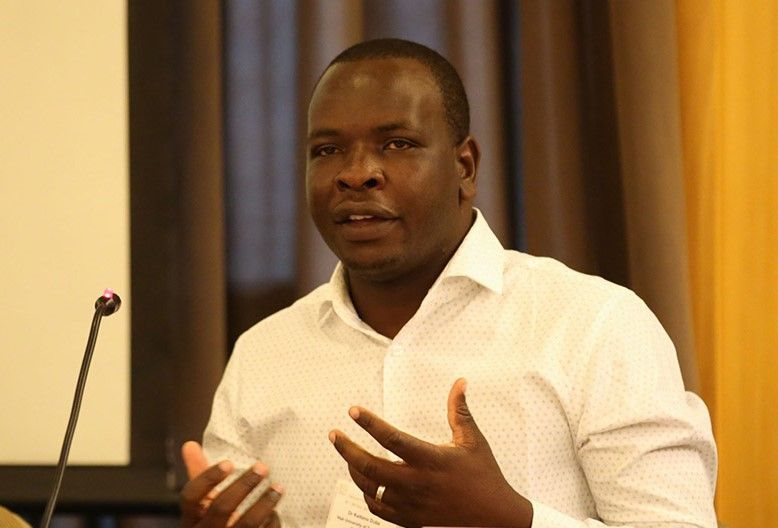The recent flooding events are a constant reminder of the threat caused by climate change, with a clear indication of the vulnerabilities of coastal communities in South-Eastern Africa. Coastal communities in Africa have to battle several threats, such as coastal storms, tropical cyclones and cut off lows (COL) which often result in devastating flood events which are disruptive to environmental and socio-economic lives.

Professor Kaitano Dube - Associate Professor: Geography from the VUT Department of Tourism and Integrated Communication
With major flooding events in 1987 (caused by cut off low), 2007 (cut off low and storm surge), 2019 (cut off low) and 2022 (cut off low), there seems to be an increase in the frequency, impacts and cost of these floods on coastal communities. The identified major floods can be attributed to the occurrence of cut off lows. Other coastal areas such as Eastern Cape and Western Cape have been battling some of the worst and most prolonged droughts back-to-back with flooding events. The most notable and recent flood events in Eastern Cape were in 2019 and now again in 2022, with areas around Port St Johns being the worst affected.
Recent studies have pointed out flooding vulnerabilities of coastal provinces such as KwaZulu-Natal, Eastern Cape and Western Cape. A mapping of Western Cape flooding hotspots and parts of Eastern Cape points to the devastating impacts of floods in coastal provinces on infrastructure such as roads, houses, businesses, tourism properties and industries. What is blatantly clear is that the poor are the worst affected by increasingly hostile extreme weather events. The shack dwellers settled in sensitive ecosystems such as rivers, wetlands, and the affluent with properties along the coastline and dunes that have borne the brunt of extreme weather events such as pluvial and coastal flooding.
Even though extreme weather events are to blame for the increased cost of these natural disasters, human negligence, poor service delivery, poor rural and urban planning, poor legislative enforcement and bad politics are equally to blame for some of the losses we have witnessed in recent years, and the KZN floods are no exception. Lack of refuse collection and no servicing of urban drainage systems has worsened flooding events compounding their impacts and severity. Evidence is there for everyone to see as mounds of waste that accumulates on harbours and beaches after floods, such as those in Durban and elsewhere. The situation is likely to be worsened and complicated by sea level rise with far-reaching implications for the environment, business and coastal communities.
Given the expected increase in weather extreme events due to climate change, there is a need for society and businesses to get down to basics concerning disaster management in the country and the region to improve climate resilience and ensure that communities are adapted to current and future climate realities. A rethink of how infrastructure such as roads, bridges and waterways is necessary. There is evidence that the impact based early warning system (EWS) has significantly improved and provides somewhat timely and accurate information. Regardless of these advances, which should assist in disaster management, the usage of such information to mitigate and reduce the impacts of flooding events is essentially in doubt. Disaster management teams' capacity across the country to respond to disasters remains a big challenge. There is a need to interrogate whether funds allocated to disaster management are invested properly towards disaster response as there seems to be a knee jerk reaction every time there is a disaster. The inadequacy of proper and fit for purpose evacuation centres across the country is a cause of concern. The lack of requisite tools needed to evacuate people, such as helicopters, even after clear warnings of the pending flood warning in KwaZulu-Natal in 2022 by South African Weather Services is a matter of grave concern.
If there is one takeaway message that came from the recent flooding events in KZN and Eastern Cape, it is that the common man and woman on the street require climate action and climate justice now. With so many displaced people, so many deaths and damages that run into billions of rands, any serious political contender in 2023 will require to have a clear message on climate action and climate justice. There is a need for clear debates in Africa around climate insurance for the rich and the poor, which is no longer an option but a must to protect lives and livelihood. There is also a need for increased debate around just transitions for Africa and South Africa. Coastal management has never been more critical in our country than now. A rethinking of infrastructural engineering is needed to allow communities to rebuild better, smart and stronger. There is a need for a conscious approach to managing the environment with the understanding and context of disaster management in a climate change era.

































